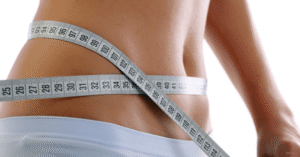
Among all breast cosmetic enhancements, reductions are most likely to reduce a patient’s lactation ability. However, reduction generally does not make breastfeeding more painful, and only very rarely prevent lactation entirely. The vast majority of women who undergo reductions are still able to breastfeed, although they may need to take action to make up for low lactation.
Breast Surgery and Breastfeeding
All enhancements run some risk of limiting lactation. Any incisions in breast tissue can cause swelling that damages milk-producing cells. It is only breast reductions, though that can lower lactation by design. Unlike breast lifts, which work through a removal of skin and fat from the upper layers, breast reductions target the underlying tissue. In many women, this will involve removal of milk-producing cells below the nipple.
Preventing Lowered Lactation
Although reduction surgery will always carry risks, you can reduce them by following your surgeon’s recommendations. Take all precautions to help your incision heal and prevent infection. With luck, you may not experience any loss of breast-feeding ability. That said, if you do experience loss, there are ways to compensate for it.
Approaching Breastfeeding
Some good advice that most lactation consultants tell their clients is that every mother should define breastfeeding success for her own body. This is not only good advice for post-enhancement women, but also for women in general. Any amount of breastfeeding is a good amount, so set your goals as low as they need to be to avoid pain and disappointment. Even if only a small amount of milk is eaten and you need to supplement it, this is still better than just formula-feeding an infant.
Maximizing Breastfeeding
There are ways to make up for lowered lactation. For one thing, you can use a breast pump to fully empty your breasts after every feeding. This will stimulate additional production.
Another option is to increase your intake of galactagogues, foods and medicines that help lactation. Galactagogues include oatmeal, chickpeas, nuts, papaya, and leafy green vegetables.
You can also try breast compression, or increased latching conditioning. A lactation consultant can help you find the best ways for your body and baby.
You can also supplement your baby nutrition with at-breast or bottle supplementation products.
Persistence Pays
The hormones associated with pregnancy and breastfeeding have powerful effects on the body. As you continue breastfeeding, your body may undergo a process called “recanalization”, where new ducts and pathways develop, improving lactation. If your doctor advises continuing breastfeeding, even if you produce very little milk, if you continue, your body may redevelop some of the capacity lost in the surgery.









